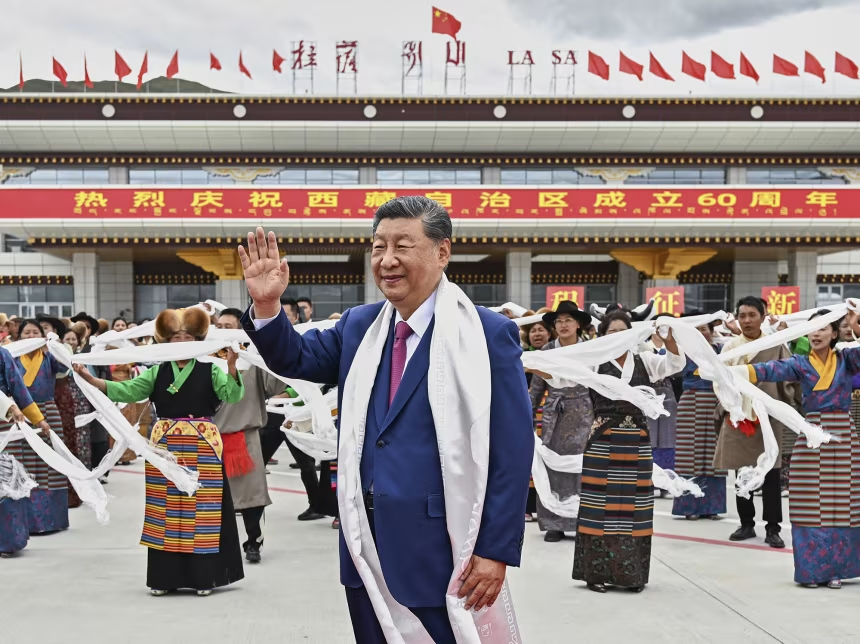Xi Jinping makes a rare visit to Tibet, showcasing Beijing’s control as the Dalai Lama’s succession looms, raising global concerns over religious freedom and Tibetan autonomy.

Chinese President Xi Jinping has made a rare and highly symbolic visit to Tibet, underscoring Beijing’s grip over the restive Himalayan region at a time when questions surrounding the Dalai Lama’s succession are growing more urgent.
Symbolism of Xi’s Visit
This marks one of the few times a Chinese leader has personally toured Tibet, a region long at the center of tensions between Beijing and the Tibetan exile community. Xi’s visit was presented as a showcase of “stability, development, and prosperity,” reinforcing the official narrative that Tibet is firmly under Chinese control. State media highlighted Xi meeting local officials, visiting monasteries, and speaking with residents, signaling Beijing’s determination to project legitimacy in the region.
Dalai Lama Succession Concerns
The visit comes amid heightened speculation over the succession of the Dalai Lama, now 89 years old. Tibetans widely believe the next spiritual leader should be chosen in exile, free from Chinese interference. Beijing, however, insists that it alone has the authority to approve any reincarnation of the Dalai Lama, raising fears of a state-controlled religious figure intended to weaken Tibetan identity.
Tightening Political Control
Over the last decade, Xi’s government has ramped up efforts to assimilate Tibet, increasing surveillance, tightening restrictions on religious practice, and investing heavily in infrastructure designed to bind the region more closely to mainland China. Critics argue these measures are part of a campaign to erase Tibetan culture and autonomy. Xi’s visit is seen as both a domestic message of strength and a warning to Tibetans who continue to resist Beijing’s authority.
Regional and Global Implications
Tibet remains a sensitive issue in China’s relations with the West. The United States and European nations have repeatedly criticized Beijing’s human rights policies in the region, while Tibetan activists in exile continue to campaign for religious freedom and cultural preservation. With the Dalai Lama’s succession looming, Xi’s show of control is likely aimed at signaling to the world that Beijing will dictate Tibet’s future on its own terms.










Comments are closed.